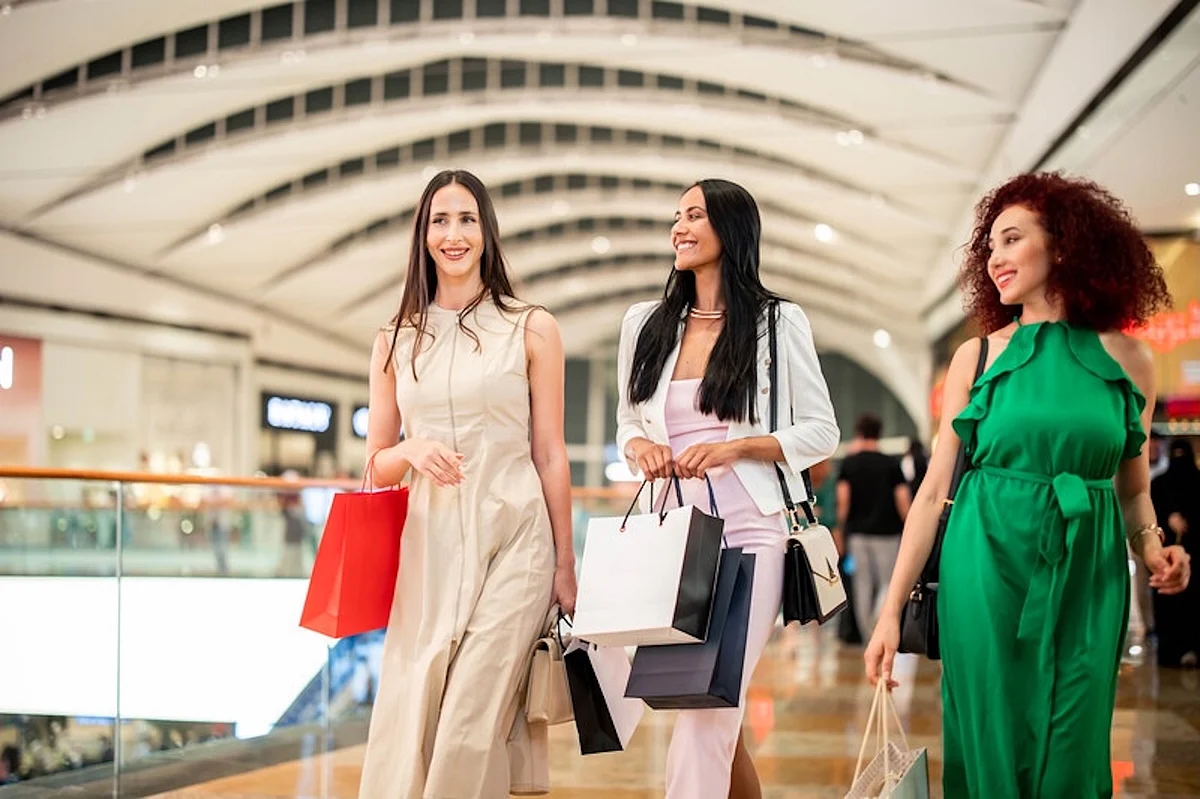
Dubai Tops World As A Haven For Luxury Retail Spending
Dubai has topped the world as a haven for luxury retail, a survey showed on Monday.
For the first time since the global financial crisis, luxury spending has slowed across major cities worldwide. Yet amid this cautious climate, Dubai has emerged as a beacon of resilience, outperforming traditional luxury capitals such as London, Paris, New York, and Singapore, according to Visa's latest Global Economic Insight report.
Recommended For YouAbout one in nine Dubai residents made a premium purchase each quarter in 2025, a figure that dwarfs comparable metrics in other major cities. This resilience is underpinned by Dubai's affluent demographic: nearly 37 per cent of households earn more than $150,000 annually, creating a robust base for high-end consumption.
“The momentum we are seeing in Dubai underlines its position as a global luxury hub, supported by a strong base of affluent residents and steady tourism flows,” said Mohamed Bardastani, Visa's Principal Economist for Central and Eastern Europe, Middle East and Africa.“As new consumers enter the market and wealth passes from one generation to the next, the base of luxury buyers will continue to grow.”
The first half of 2025 marked a turning point for the luxury sector. Economic uncertainty, trade tensions, and currency fluctuations have dampened consumer confidence, leading to fewer high-end purchases in key markets. Visa's analysis of cardholder activity across top luxury hubs shows that global luxury spending dipped for the first time in over a decade, signaling a pause after years of robust growth.
Cities long synonymous with luxury - London, Paris, New York, and Singapore - recorded declines in the share of residents buying premium goods. This slowdown underscores a broader trend: even the world's most confident consumers are reassessing discretionary spending.
In stark contrast, Dubai stood firm. The city not only resisted the global downturn but maintained stable luxury spending levels.
Luxury broadens beyond the ultra-wealthy
Visa's data also reveals a structural shift in luxury consumption. Once the domain of the ultra-wealthy - the top 1 per cent - luxury is now reaching deeper into the consumer pyramid. Spending patterns show strong engagement from the affluent (top 5 per cent), emerging affluent (top 10 per cent), and even upper middle class (top 20 per cent). For these segments, premium goods represent aspiration and self-expression, signaling achievement in a competitive global economy.
This democratisation of luxury is particularly evident in Dubai, where cultural diversity and rising disposable incomes have fueled demand for designer bags, watches, and jewelry. The city's retail landscape, anchored by world-class malls and flagship boutiques, continues to attract both residents and tourists seeking exclusive experiences.
Several factors explain Dubai's outperformance. Its strategic location as a global travel hub ensures steady inflows of high-spending visitors. The emirate's tax-free environment and reputation for safety further enhance its appeal to international shoppers. Moreover, luxury brands view Dubai as a critical growth market, investing heavily in experiential retail and personalised services.
While global luxury faces headwinds, the long-term outlook remains positive. As Bardastani notes, generational wealth transfer and the rise of new consumer cohorts will sustain demand. For Dubai, the challenge - and opportunity - lies in leveraging its momentum to cement its status as the world's premier luxury destination.
Global context: A pause, not a collapse
Globally, the slowdown marks a significant moment for the luxury industry. Major hubs such as London and Paris reported declines in the share of cardholders buying designer goods, while New York and Singapore saw similar contractions. The dip follows years of expansion fueled by post-pandemic recovery and generational wealth transfers.
However, Visa's economists stress that the downturn is cyclical rather than structural.“Luxury remains a resilient sector,” Bardastani noted, pointing to long-term drivers such as rising affluence in emerging markets and the growing influence of younger consumers who view luxury as part of their lifestyle identity.
Dubai's ability to buck the trend is attributed not only to its wealthy resident base but also to its thriving tourism sector and world-class retail infrastructure. The city's luxury malls, flagship boutiques, and tax-free shopping environment continue to attract high-spending visitors from Europe, Asia, and beyond. Combined with strategic investments in hospitality and experiential retail, these factors reinforce Dubai's competitive edge.
As global luxury players recalibrate for a more cautious consumer environment, Dubai offers a rare bright spot - a market where confidence remains intact and growth prospects look promising. For brands seeking stability amid uncertainty, the message is clear: all roads lead to Dubai.

Legal Disclaimer:
MENAFN provides the
information “as is” without warranty of any kind. We do not accept
any responsibility or liability for the accuracy, content, images,
videos, licenses, completeness, legality, or reliability of the information
contained in this article. If you have any complaints or copyright
issues related to this article, kindly contact the provider above.


















Comments
No comment